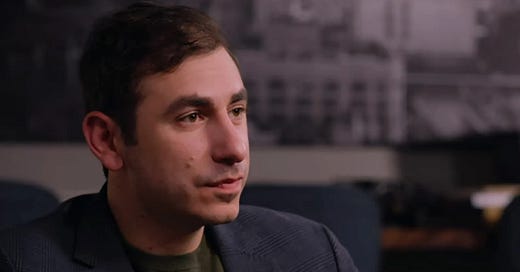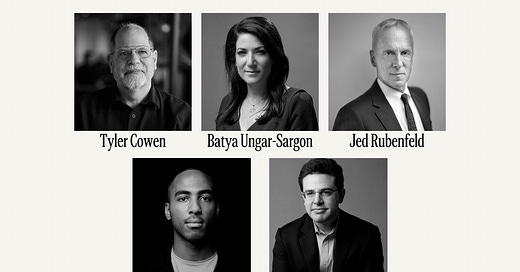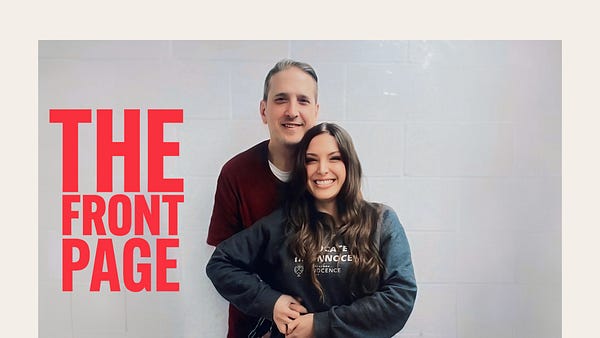
Eithan Haim, 34, is at the beginning of his career as a surgeon. He and his wife are expecting their first child in the fall. And now he is facing a four-count federal felony indictment for blowing the whistle on Texas Children’s Hospital, where he worked while a resident.
At TCH, he discovered the hospital was secretly continuing gender transition treatments on minors—including hormonal intervention on patients as young as 11 years old—after publicly declaring, in March of 2022, it would no longer provide such services.
The hospital unwillingly backed away from the treatments under pressure from the Texas governor and attorney general. But Haim found not only were the treatments continuing—the program appeared to be expanding. He recorded several online presentations by medical staff encouraging the transition of children—one social worker described how she deliberately did not make note of such treatment in the medical charts of patients to avoid leaving a paper trail. Haim told me, “They were talking publicly about how they were concealing what they were doing. You can’t take care of your patient without trust. For me as a doctor, to not do something about this was unconscionable.”
Haim, like a growing number of medical professionals around the world, had grave doubts about the safety and efficacy of the explosively growing business of youth gender transition medicine. When he looked into it, he found that children distressed about their biological sex often had multiple mental health challenges—conditions that were being ignored in the rush to put vulnerable young people on hormones, and even to perform surgical interventions. These treatments are profoundly life-altering, with a high risk of rendering a young person sterile. In the last few years, a growing number of countries have investigated these treatments for young people, found the evidence wanting, and have effectively banned interventions such as puberty blockers—drugs that prevent children from entering puberty.
Haim felt he had to act, but he knew the career risks of speaking out could be enormous. He contacted conservative journalist Christopher Rufo, who published an exposé without naming Haim. Before giving Rufo evidence that puberty blockers were still being surgically implanted in young patients, Haim made sure the patient’s names and other identifying information were redacted. This was both to protect patient privacy, and himself from violating the law known as HIPAA, which protects individual patient identities while also allowing various uses of medical information. The story Haim gave to Rufo was published May 16, 2023. The next day, the Texas legislature voted to ban the medical gender transition of minors.
Haim says there was no immediate aftermath: “Everything went quiet. I was anonymous and went on with my life.” Then June 23 of last year, the day Haim was to graduate from his residency, two federal agents from the U.S. Department of Health and Human Services showed up at his house to have a little chat. Haim’s wife, an assistant U.S. attorney for the Northern District of Texas, a different division of the U.S. Attorney’s office than the one that has indicted her husband, advised him not to talk.
As Haim later wrote in City Journal, “Before leaving, they handed me a letter revealing that I was a ‘potential target’ of an investigation involving alleged violation of federal criminal law related to medical records.” Haim then went public about the threat facing him in an interview with Rufo. (The U.S Attorney’s Office for the Southern District of Texas did not respond to a request for comment.)
Haim was indicted last week, but, as of this writing, he and his attorneys do not yet know the precise nature of the charges. One of his lawyers, Mark Lytle, told me it’s very unusual to bring felony charges for an alleged HIPAA violation unless there is a significant underlying crime, such as a hospital clerk selling a celebrity’s medical records. He said the indictment of Haim seems politically motivated. “The government is entering into the town square on the culture wars and didn’t like what Eithan had to say,” said Lytle. “I think they are looking to make an example of him.” Haim is raising money for his legal fees through this GiveSendGo account.
Haim told me despite the peril he is now facing he has no regrets about blowing the whistle and is committed to fighting the federal charges. He said, “If we don’t fight back, what world are we delivering our children into?”
Emily Yoffe is a senior editor at The Free Press. You can follow her on X at @emilyyoffe.
Become a Free Press subscriber today:















I can't believe we live in a country where the government is getting involved in silencing citizens who are political dissidents.
Who are the doctors who administered "gender-affirming" (child-abusing) "care" when the practice was outlawed by the state of Texas? Who are the nurses who participated? Who falsified records?
Who are the hospital administrators responsible for a conspiracy to commit numerous offenses? How many cases are there and what is the penalty for each separate crime? It seems to me that TCH ought to be taken to pieces and put together again with new administrators and staff, while the Texan state penitentiary system should be able to open a pediatric care ward as a public service (if anyone wants to submit their children to the tender mercies of convicted child abusers).